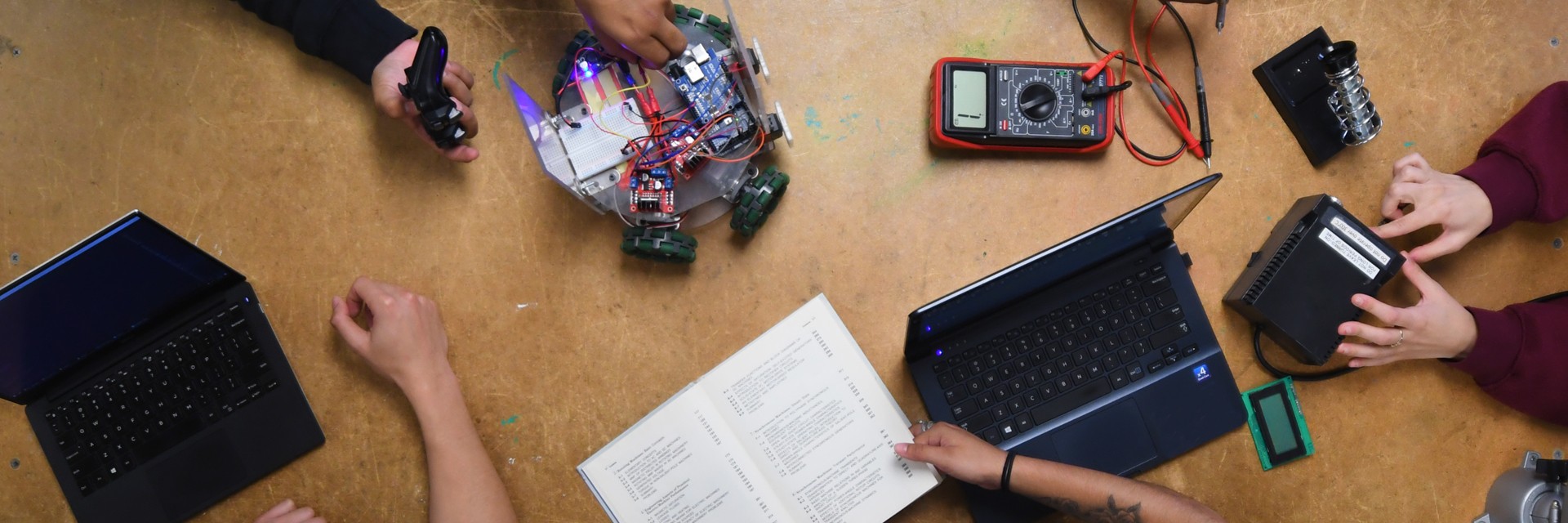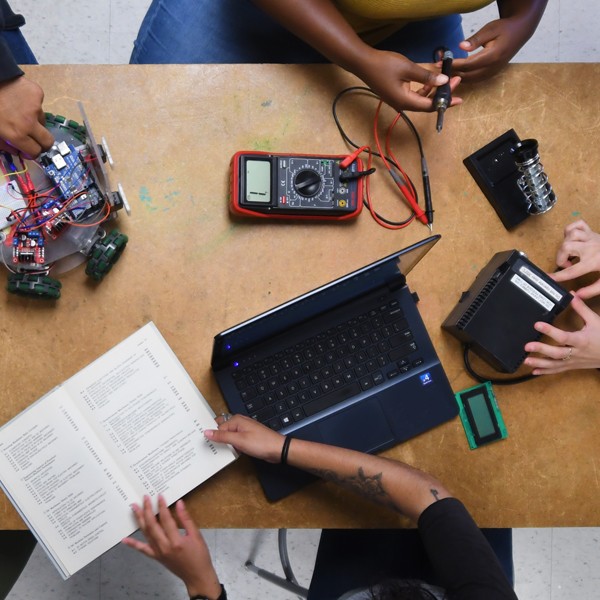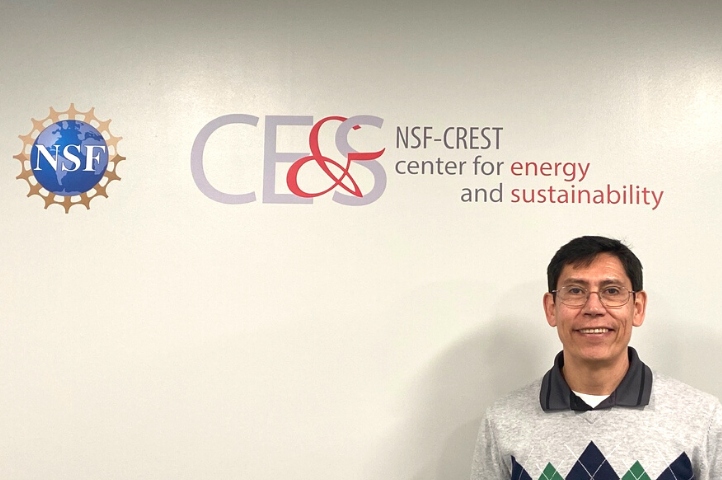Photo: Dr. Arturo Pacheco-Vega
With a $5 million grant from the National Science Foundation (NSF), ECST is creating a research center for urban sustainability that will advance energy and water research and expand opportunities for Cal State LA students and faculty to pursue original research. The five-year grant, which was awarded to ECST in late 2021, is funded through the NSF Centers of Research Excellence in Science and Technology (CREST) program. The CREST program seeks to expand the research capacity of minority-serving institutions through the creation of centers that effectively integrate education and research.
In addition to supporting original research, the new CREST Center for Advancement toward Sustainable Urban Systems (CREST CATSUS) will train and mentor students underrepresented in the STEM fields to help meet the high demand for skilled diverse professionals in industry as well as in doctoral and postdoctoral academic research programs.
CREST CATSUS will train and mentor students underrepresented in the STEM fields to help meet the high demand for skilled diverse professionals in industry as well as in doctoral and postdoctoral academic research programs.
According to Dr. Arturo Pacheco-Vega, the grant’s lead Principal Investigator and ECST Professor of Mechanical Engineering, the new Center builds on the success of ECST’s existing CREST Center for Energy and Sustainability (CREST CEaS). ECST received a CREST grant from the NSF in 2009 to create CREST CEaS, which is also directed by Dr. Pacheco-Vega.
“The new Center is an evolution of our existing Center, which has been very successful in terms of research output and student development,” says Dr. Pacheco-Vega. “We train students through original research projects that encourage them to find new knowledge to add to their fields and help solve big problems. They also learn how to write in a technical manner and present so they can report on their research in journal articles and at conferences.”
We train students through original research projects that encourage them to find new knowledge to add to their fields and help solve big problems.
The success metrics of CEaS speak for themselves:
- From the first year of CEaS, the number of journal articles and papers published by its faculty tripled to 29 in 2020 and reached 35 in 2021
- More than half (54%) of the 112 students involved in the Center have continued into master’s and/or Ph.D. programs in STEM with the other 46% working in industry
- The Center’s faculty collectively have been awarded 34 external grants totaling more than $14 million, including six $100,000 CREST supplemental grants from NSF
- Center faculty have acquired and made available to use state-of-the-art instruments related to materials and energy research with a cumulative value exceeding $3 million
- The Center has led campus-wide, energy-related research and educational projects, including an NSF-funded partnership in materials science research and education between Cal State LA and Penn State that led to the development of a master’s degree program in Materials Science and Engineering; its first cohort entered in the fall of 2019
Says Dr. Pacheco-Vega, “CEaS has a narrower focus than the new Center, but it laid the foundation for the more complex, large-scale, and multi-disciplinary research projects we’ll be taking on.”
The new Center’s expanded focus will be on developing novel and transformative research related to energy systems and management in buildings, advanced materials for energy and water applications, and resilience of urban water bodies. Research will align with state and local sustainability goals of carbon neutrality, water availability, and waste reduction.
The new Center’s expanded focus will be on developing novel and transformative research related to energy systems and management in buildings, advanced materials for energy and water applications, and resilience of urban water bodies.
The new Center also builds on ECST’s Sikand Center for Sustainable and Intelligent Infrastructure (SITI-Center), which provides additional research funding, administrative support, and educational programs in urban infrastructure sustainability and encourages collaborations with local public agencies and companies.
In addition, the new Center will emphasize collaboration between faculty members in ECST and across the Cal State LA campus who share a common vision and goals for urban sustainability. Says Dr. Pacheco-Vega, “I believe that by building synergy we can increase the collective impact of our activities. Results from our research will have the potential to advance the well-being of the planet and people by addressing problems related to climate change and improving environmental conditions.”
Dr. Pacheco-Vega also recognizes the importance of the new Center in helping faculty and students achieve their own individual goals as well. He says, “Faculty members have their own goals and dreams. They just went through the painful process of getting a Ph.D. Hopefully, they love teaching and research. They inform each other. The Center can help them realize their dreams.”
Asked what motivates him, Dr. Pacheco-Vega says, “I am a researcher and from that point of view, it is gratifying to me to learn and discover new knowledge. If you are the first one to learning something new, no one can take that away.
“As a professor and a person, I want to help people learn and develop themselves and their potential to the fullest so they can be excellent contributors to society,” he says. “Some of my students are now professors or working in a national lab as a research scientist or in a company. They are helping clean up nuclear waste or developing new airplanes—a lot of different things and important things that move the world forward. When they are successful, that’s when I am happiest.”
Dr. Pacheco-Vega’s co-investigators on the grant project include Dr. Gustavo Menezes, Professor of Civil Engineering; Dr. Sonya Lopez, Associate Professor of Civil Engineering; Dr. Jeffrey Santner, Assistant Professor of Mechanical Engineering; and Dr. Yixian Wang, Associate Professor of Chemistry. A group of 15 faculty members from ECST and the College of Natural and Social Sciences at Cal State LA will participate in this interdisciplinary research collaboration.


